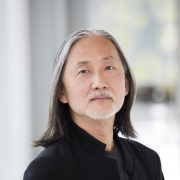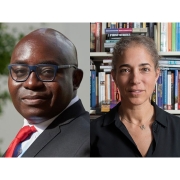Biology’s Dustin Brisson Receives Award for Investigators in Infectious Disease

Assistant Professor of Biology Dustin Brisson has been named a recipient of the 2013 Burroughs Wellcome Fund’s Investigators in the Pathogenesis of Infectious Disease award. These five-year awards provide $500,000 to support accomplished investigators at the assistant professor level in their studies of pathogenesis (the development of disease). The recipients are focusing on the interplay between human and microbial biology, to shed light on how both human and microbial systems are affected by their encounters.
The awards are intended to give recipients the freedom and flexibility to pursue new avenues of inquiry and higher-risk research projects that have the potential to significantly advance the biochemical, pharmacological, immunological, and molecular biological understanding of how microbes and the human body interact. Brisson is one of only nine recipients in the nation this year.
Brisson studies the evolution of infectious diseases, research that lies at the interface between evolutionary biology, microbial ecology, and molecular genetics. Working in the field and the lab, he uses molecular techniques, evolutionary theory, and computer modeling to explain the evolutionary forces that have shaped the history of populations. Additionally, he is using molecular genetics and classic ecology to discover the interactions that govern the current distribution and abundance of populations and genotypically distinct lineages within populations. His research focuses on interactions between eukaryotes (a type of cellular organism) and microbes (usually a disease-causing bacterium) of interest in public health, especially Lyme disease bacteria. Understanding the natural biology of these organisms is a crucial step in the long-term control of diseases.
Brisson has authored or coauthored more than 70 papers in scholarly journals, including a recent article in The New England Journal of Medicine that showed that recurring cases of Lyme disease result from reinfection by different strains of the bacteria. His teaching includes Introductory Biology and a seminar course aimed at non-biology majors, Humans in a Microbial World. He received his Ph.D. from Stony Brook University.
The Burroughs Wellcome Fund (BWF) is an independent private foundation dedicated to advancing the biomedical sciences by supporting research and other scientific and educational activities. Within this broad mission, BWF has two primary goals: to help scientists early in their careers develop as independent investigators and to advance fields in the basic biomedical sciences that are undervalued or in need of particular encouragement. BWF’s financial support is channeled primarily through competitive peer-reviewed award programs.





